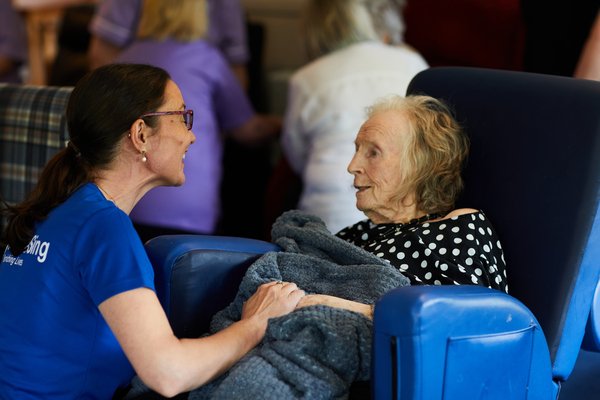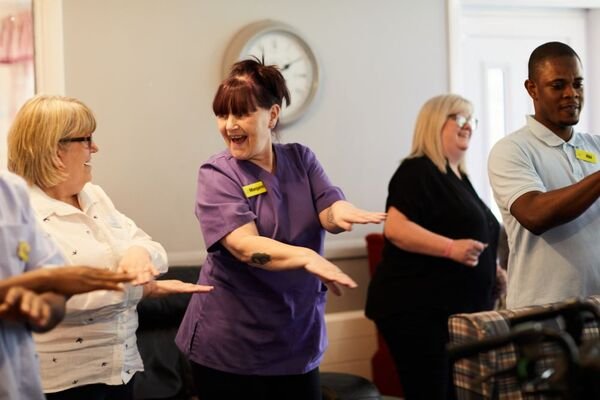
Music is often regarded as the soundtrack of our lives, serving as a bridge to our past, a source of joy in the present, and a powerful means of healing. Beyond its enjoyment, music is increasingly recognized as a fundamental element of holistic care, particularly for older adults.
Whether it’s a beloved Beatles song echoing through the halls or soft piano melodies played by a resident, music does more than entertain. It evokes memories, sparks conversations, uplifts spirits, and fosters connections that words alone may struggle to convey.
Music: A Gateway to Memories
One of music’s most remarkable abilities is its power to awaken memories. For those living with dementia or Alzheimer’s, familiar tunes can revive vivid recollections of weddings, childhood summers, or first dances. Unlike other types of memory, musical memory often remains intact long after other cognitive functions decline. This connection not only facilitates meaningful interactions and builds emotional bridges with loved ones but also provides comfort during disorienting moments.
A single song can transport someone back in time, unlocking memories believed to be lost. It’s not sorcery; it’s neuroscience. Research shows that music activates brain regions associated with emotion and long-term memory, making it an invaluable therapeutic resource.
A Universal Language of Connection
Music transcends barriers, creating connections regardless of age, language, or cognitive ability. In care home settings, group music sessions often lead to spontaneous sing-alongs, foot tapping, and even dancing.
These shared musical experiences foster community, alleviate feelings of loneliness, and encourage self-expression. In environments where isolation can be prevalent, music acts as a social glue, helping residents feel acknowledged, listened to, and part of a larger community.

Enhancing Mental and Physical Wellbeing
The positive impact of music on mental health is well established. It can alleviate anxiety, lower blood pressure, and even aid in sleep regulation. For older adults, particularly those experiencing cognitive decline, structured music therapy has demonstrated effectiveness in reducing agitation and improving mood.
On a physical level, engaging with music—whether through singing, tapping, or dancing—can help maintain motor skills and enhance coordination. It fosters movement, even in small ways, which is crucial for sustaining independence and overall health.
Anavo’s Philosophy: Purpose, Connection, and the Impact of Music
At Anavo, holistic care is more than just a philosophy; it’s a dedicated practice. Their approach extends beyond addressing physical needs to include emotional, social, and psychological wellbeing. Music plays a significant role in this commitment.
By incorporating music into daily life, Anavo homes foster environments where residents are encouraged to express themselves, connect with others, and revisit cherished memories. This aligns with their overarching mission to promote independence and instill a sense of purpose in every resident, whether through a favorite song, an impromptu dance in the lounge, or a quiet moment of reflection with headphones on.
Anavo understands that care should be tailored to the individual, and music is one of many tools they utilize to curate enriching experiences, boost confidence, and cultivate joy.

More Than Just Musical Notes
In holistic care, music is far from mere background noise; it is a vibrant and essential component of nurturing the whole person. It reconnects, revitalizes, and restores. When embraced by compassionate caregivers and progressive organizations like Anavo, music becomes a powerful avenue toward dignity, belonging, and joy.
Experience the transformative power of music in care firsthand by visiting one of Anavo’s care homes participating in Care Home Open Week. If you go to Surbitonian Gardens Care Home on Tuesday at 10:30 AM, you might even meet Strictly Star, Erin Boag.







